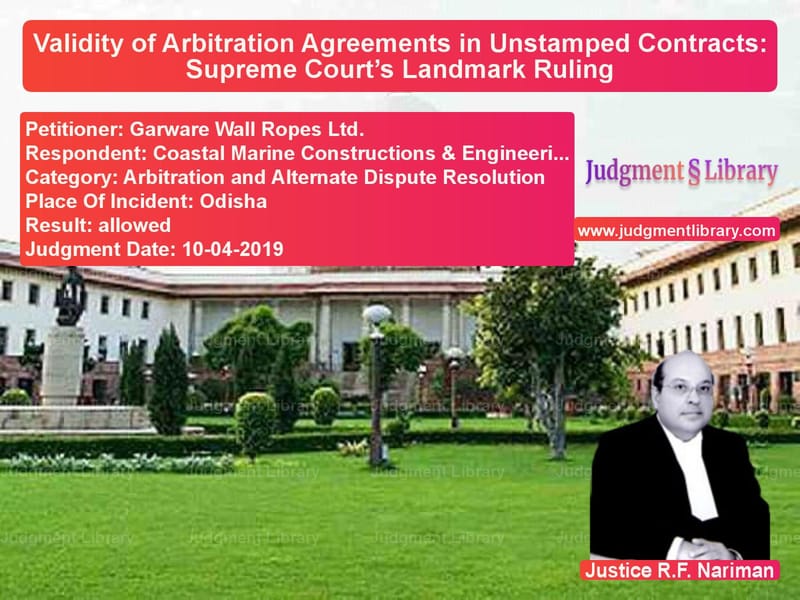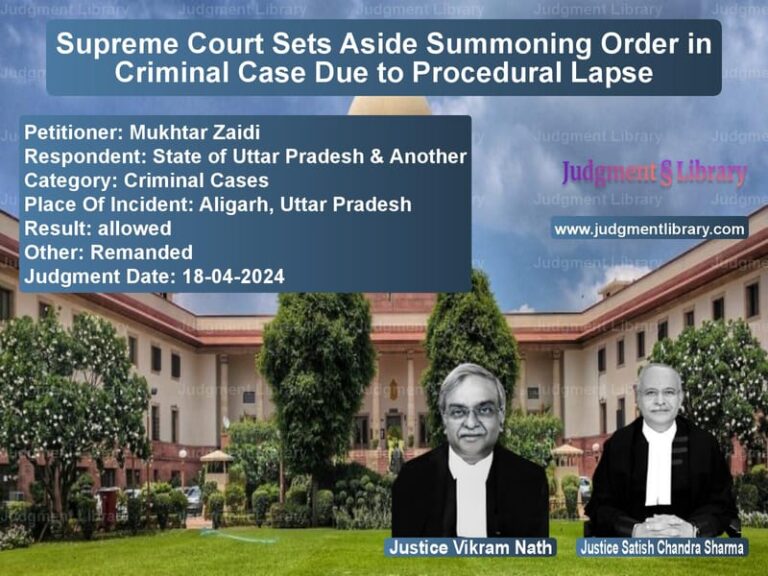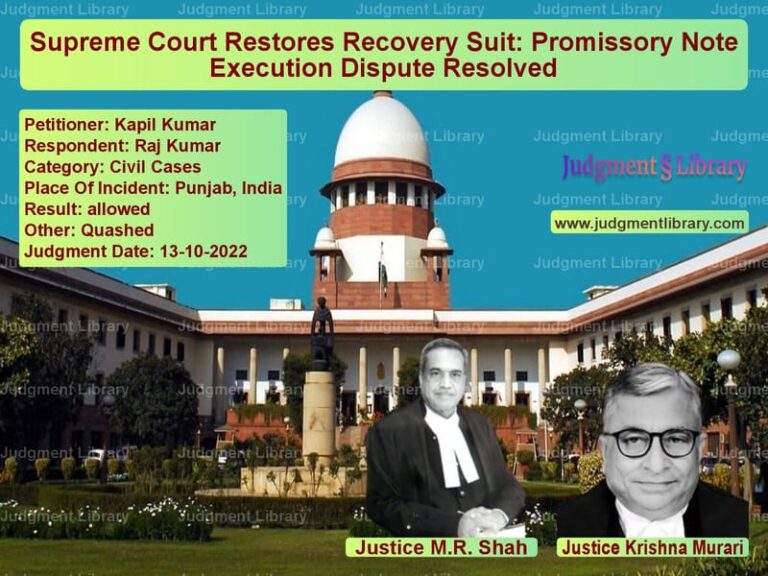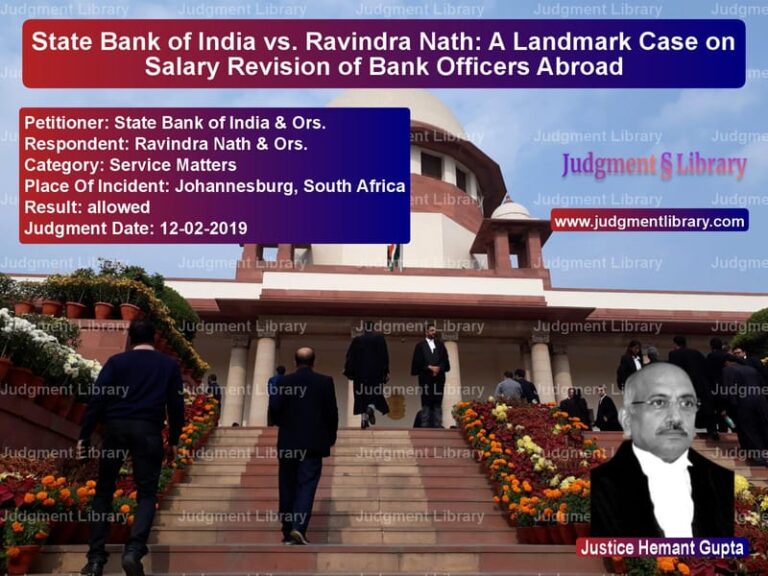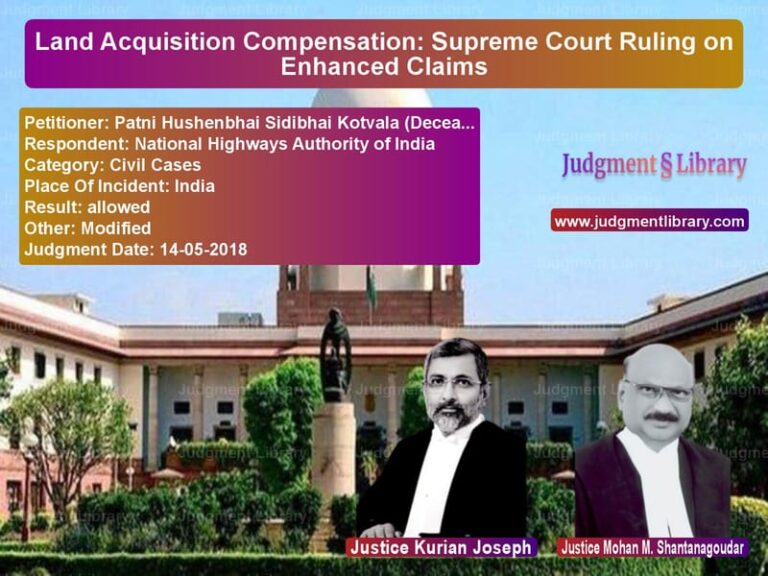Validity of Arbitration Agreements in Unstamped Contracts: Supreme Court’s Landmark Ruling
The Supreme Court of India, in the case of Garware Wall Ropes Ltd. vs. Coastal Marine Constructions & Engineering Ltd., has ruled that an arbitration agreement contained within an unstamped contract cannot be acted upon until the contract is duly stamped. This judgment has significant implications for arbitration proceedings in India and clarifies the relationship between the Arbitration and Conciliation Act, 1996, and the Indian Stamp Act, 1899.
Background of the Case
The dispute in this case arose between Garware Wall Ropes Ltd. (the appellant) and Coastal Marine Constructions & Engineering Ltd. (the respondent), regarding a subcontract for installing a geo-textile tube embankment to prevent coastal erosion in Odisha. The contract, dated June 14, 2013, contained an arbitration clause that stipulated arbitration in Pune.
However, disputes arose between the parties, leading the respondent to invoke the arbitration clause and appoint an arbitrator, which was objected to by the appellant. The appellant argued that since the contract was unstamped, the arbitration agreement could not be enforced. The respondent then filed a petition under Section 11 of the Arbitration and Conciliation Act, 1996, before the Bombay High Court, which allowed the petition and appointed an arbitrator.
Aggrieved by this decision, the appellant challenged the High Court’s ruling before the Supreme Court.
Key Legal Issues Before the Supreme Court
- Whether an arbitration agreement within an unstamped contract is enforceable under the Arbitration and Conciliation Act, 1996.
- Whether an unstamped contract must be impounded at the stage of Section 11 proceedings.
- Whether the introduction of Section 11(6A) in the Arbitration Act altered the impact of the Indian Stamp Act on unstamped contracts.
Arguments Before the Supreme Court
Appellant’s (Garware Wall Ropes Ltd.) Contentions:
- The appellant argued that the contract required stamping under the Maharashtra Stamp Act and that an unstamped contract is inadmissible as evidence and cannot be acted upon under Section 35 of the Indian Stamp Act.
- They relied on the Supreme Court’s ruling in SMS Tea Estates (P) Ltd. v. Chandmari Tea Co. (P) Ltd. (2011), which held that a court must impound an unstamped contract before referring disputes to arbitration.
- The appellant contended that since the arbitration agreement is a part of the contract, it cannot be enforced separately unless the contract is duly stamped.
Respondent’s (Coastal Marine Constructions) Counterarguments:
- The respondent argued that the arbitration clause is independent of the main contract and should be enforceable even if the contract is unstamped.
- They pointed to Section 11(6A) of the Arbitration and Conciliation Act, which was introduced by the 2015 amendment, arguing that courts are only required to determine the ‘existence’ of an arbitration agreement, not its validity.
- The respondent contended that any defect related to stamping could be cured by the arbitrator, rather than at the stage of appointing an arbitrator under Section 11.
Supreme Court’s Observations
The Supreme Court rejected the respondent’s arguments and upheld the view that an arbitration agreement within an unstamped contract cannot be enforced. The key observations of the Court were:
- “The Indian Stamp Act, 1899, requires that an agreement must be duly stamped before it can be admitted as evidence or acted upon in any proceeding.”
- “An arbitration clause embedded in an unstamped contract cannot be considered separately from the main contract for the purpose of enforcement.”
- “Section 11(6A) of the Arbitration Act does not override the Indian Stamp Act’s requirements. A court must impound an unstamped contract before referring disputes to arbitration.”
- “The decision in SMS Tea Estates remains applicable despite the 2015 amendment to the Arbitration Act.”
The Court also clarified that its ruling in Vidya Drolia v. Durga Trading Corporation (2020) reaffirmed the principle that the arbitration agreement cannot be enforced if the contract itself is legally inadmissible due to non-stamping.
Final Judgment
The Supreme Court set aside the Bombay High Court’s ruling and directed that:
- The subcontract must be impounded and properly stamped before arbitration can proceed.
- The Section 11 application should not have been allowed before ensuring compliance with the Indian Stamp Act.
- The appointment of an arbitrator without addressing the stamping requirement was legally invalid.
Conclusion
This ruling is significant for arbitration law in India as it reinforces the principle that contracts must be duly stamped before they can be acted upon. The judgment clarifies that Section 11(6A) of the Arbitration Act does not override the Indian Stamp Act and that unstamped contracts must first be regularized before arbitration proceedings can commence.
The ruling will have a far-reaching impact on how arbitration agreements are enforced in India, ensuring that all contracts comply with mandatory legal requirements before they can be used as the basis for arbitration proceedings.
Petitioner Name: Garware Wall Ropes Ltd..Respondent Name: Coastal Marine Constructions & Engineering Ltd..Judgment By: Justice R.F. Nariman.Place Of Incident: Odisha.Judgment Date: 10-04-2019.
Don’t miss out on the full details! Download the complete judgment in PDF format below and gain valuable insights instantly!
Download Judgment: Garware Wall Ropes L vs Coastal Marine Const Supreme Court of India Judgment Dated 10-04-2019.pdf
Direct Downlaod Judgment: Direct downlaod this Judgment
See all petitions in Arbitration Act
See all petitions in Enforcement of Awards
See all petitions in Commercial Arbitration
See all petitions in Judgment by Rohinton Fali Nariman
See all petitions in allowed
See all petitions in supreme court of India judgments April 2019
See all petitions in 2019 judgments
See all posts in Arbitration and Alternate Dispute Resolution Category
See all allowed petitions in Arbitration and Alternate Dispute Resolution Category
See all Dismissed petitions in Arbitration and Alternate Dispute Resolution Category
See all partially allowed petitions in Arbitration and Alternate Dispute Resolution Category

